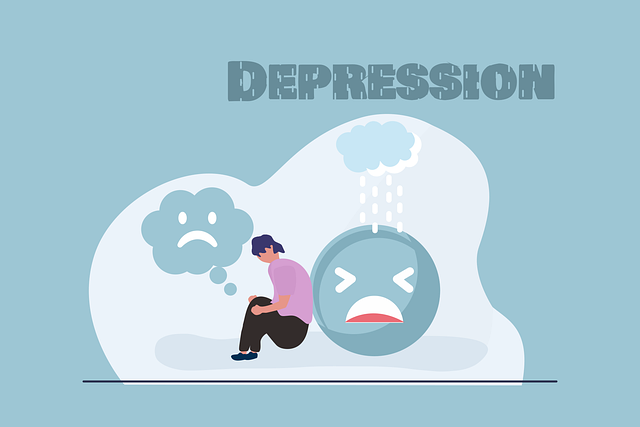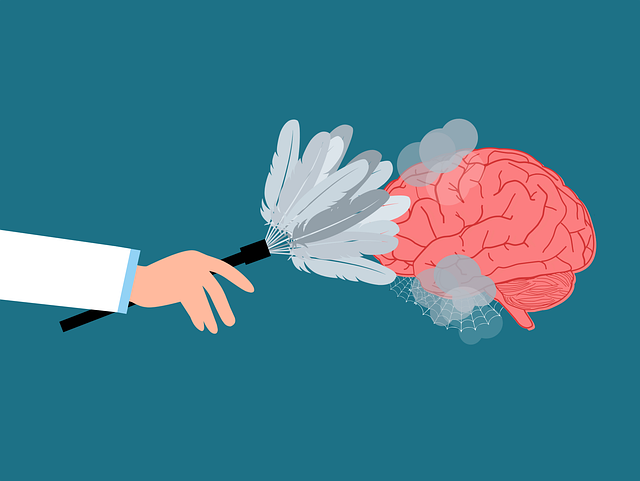Healthcare providers treating young adults with conduct disorders face high burnout risks due to demanding work. Effective prevention strategies include encouraging self-care, boundary setting, physical activity, and stress reduction techniques for both providers and patients. Tailored therapy for Young Adults Conduct Disorder using evidence-based techniques, peer support groups, and community outreach programs can enhance resilience, improve mental health, and mitigate burnout, ensuring high-quality patient care.
Healthcare provider burnout is a growing concern, impacting patient care and well-being. This article explores effective strategies to prevent burnout among healthcare professionals, focusing on young adults with conduct disorder. We delve into the unique challenges faced by these providers and highlight the pivotal role of therapy in combating exhaustion. By examining evidence-based practices, we aim to guide healthcare workers in fostering resilience, improving patient outcomes, and enhancing their own mental health. Additionally, we explore the impact of specialized therapy for young adults with conduct disorder.
- Understanding Burnout Among Healthcare Providers
- Strategies to Prevent Burnout in Young Adult Patients with Conduct Disorder
- The Role of Therapy in Combating Burnout and Promoting Well-being
Understanding Burnout Among Healthcare Providers

Healthcare providers, from doctors to nurses and therapists, often face intense pressure and high-stress situations on a daily basis. This constant exposure to emotional and physical demands can lead to a state known as burnout—a phenomenon characterized by overwhelming exhaustion, cynicism, and detachment from work. Among young adults, particularly those with conduct disorder or seeking therapy for such disorders, the risk of burnout is even higher due to the unique challenges they face in their personal and professional lives.
Burnout prevention strategies are crucial for maintaining a healthy work-life balance. For young adults dealing with conduct disorder or seeking trauma support services, developing a robust self-care routine can be transformative. This involves setting clear boundaries between work and personal time, engaging in regular exercise, prioritizing quality sleep, and incorporating stress-reducing practices such as mindfulness or meditation. By integrating these strategies into their daily lives, healthcare providers—and specifically those supporting young adults with conduct disorders—can enhance their resilience, improve mental health, and better serve their patients without succumbing to the harmful effects of chronic burnout.
Strategies to Prevent Burnout in Young Adult Patients with Conduct Disorder

Preventing burnout in young adults with conduct disorder is a multifaceted approach that integrates specialized therapy for young adults conduct disorder alongside robust mental health education programs design and effective communication strategies. These individuals often face complex challenges, stemming from their condition, which can lead to heightened stress and emotional exhaustion if not properly addressed. Therefore, tailored interventions are crucial.
One key strategy involves fostering inner strength development through evidence-based therapies that target coping mechanisms and resilience. By equipping young adults with healthy ways to manage stress and navigate difficult emotions, they can better withstand the demands of daily life and their treatment journey. Complementing these individual therapies, group sessions focused on peer support and communication strategies can create a sense of belonging and reduce feelings of isolation, further mitigating burnout risks.
The Role of Therapy in Combating Burnout and Promoting Well-being

Therapy plays a pivotal role in preventing healthcare provider burnout and promoting overall well-being. For young adults struggling with conduct disorder or other mental health challenges, specialized therapy can be incredibly effective. Conducting therapy sessions tailored to their needs helps them develop coping skills, enhance positive thinking, and manage stress effectively. This not only improves their personal lives but also translates into better patient care in healthcare settings.
Implementing community outreach programs as part of the therapeutic process further reinforces these benefits. By connecting with peers and learning from each other’s experiences, young adults can build a support network that fosters resilience against burnout. Coping skills development is emphasized, encouraging them to adopt healthy habits and strategies for navigating demanding work environments. Through these efforts, therapy becomes not just a tool for individual growth but also a powerful means to strengthen the healthcare workforce as a whole.
Burnout among healthcare providers is a pressing issue, but through implementing targeted strategies like enhancing access to therapy for young adults with conduct disorder and fostering supportive work environments, we can mitigate this crisis. By integrating evidence-based practices, including specialized therapy tailored to the unique needs of this population, healthcare organizations can promote well-being and prevent burnout. This multi-faceted approach ensures that both providers and patients benefit from a healthier, more resilient healthcare system.














